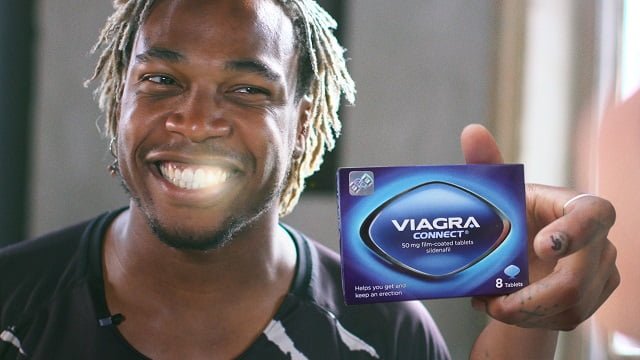Navigating the complex landscape of men’s health can be challenging, but you’re not alone. This comprehensive guide explores various aspects of men’s health, including common issues, treatment options, support networks, and professional resources to help you on your journey to better health and well-being.
Understanding Common Men’s Health Issues
Men face various health challenges throughout their lives. Being aware of these issues is the first step towards prevention and early treatment.
- Cardiovascular diseases
- Prostate health concerns
- Mental health issues (depression, anxiety)
- Diabetes Erectile dysfunction (ED)
- Testicular and penile cancers
- Hormonal imbalances
- Obesity and metabolic disorders
Overcoming Health Challenges: Real Stories
Many men face health issues but hesitate to seek help. Here are some inspiring stories of those who took charge of their well-being:
- John, 45: “After years of ignoring my growing waistline and fatigue, I finally consulted a doctor. Discovering I had pre-diabetes was a wake-up call. With lifestyle changes and support, I’ve lost 30 pounds and feel better than ever.”
- Mike, 32: “Anxiety was affecting my work and relationships. Joining a men’s support group helped me realize I wasn’t alone. Now, I manage my mental health proactively and have tools to cope with stress.”
- David, 58: “Routine check-ups saved my life. Early detection of prostate cancer allowed for successful treatment. I can’t stress enough the importance of regular health screenings.”
- Robert, 50: “I struggled with ED for years before seeking help. My doctor helped me understand the underlying causes and provided treatment options. It’s improved not just my physical health, but my relationship and self-confidence too.”
Personal Recommendations for a Healthier Lifestyle
Men who’ve improved their health often share valuable insights:
- Prioritize sleep: Aim for 7-9 hours nightly to boost energy and mental clarity.
- Stay active: Find enjoyable physical activities, whether it’s team sports, hiking, or gym workouts.
- Eat mindfully: Focus on balanced nutrition with plenty of fruits, vegetables, and lean proteins.
- Manage stress: Practice relaxation techniques like meditation or deep breathing exercises.
- Connect socially: Maintain strong relationships with friends and family for emotional well-being.
- Regular check-ups: Don’t skip annual physicals and recommended screenings.
- Open communication: Discuss health concerns with your partner and healthcare provider.
- Limit alcohol and quit smoking: These habits significantly impact overall health and sexual function.
Understanding Erectile Dysfunction (ED)
Erectile dysfunction is a common issue that many men face but often hesitate to discuss. It’s important to understand that ED can be a symptom of underlying health conditions and should be addressed with a healthcare professional.
Causes of Erectile Dysfunction
ED can have various causes, including:
- Cardiovascular issues
- Diabetes
- Hormonal imbalances
- Neurological disorders
- Psychological factors (stress, anxiety, depression)
- Certain medications
- Lifestyle factors (smoking, excessive alcohol consumption, obesity)
Seeking Help for ED
If you’re experiencing persistent issues with erectile function, it’s crucial to consult a healthcare provider. They can:
- Conduct a thorough physical examination
- Order relevant blood tests
- Discuss your medical history and current medications
- Explore potential underlying causes
- Recommend appropriate treatment options
Treatment Options for ED
Treatment for ED depends on the underlying cause and may include:
- Lifestyle changes (improved diet, increased exercise, stress reduction)
- Psychological counseling
- Medication (including PDE5 inhibitors)
- Hormone therapy
- Vacuum erection devices
- Surgery (in rare cases)
It’s important to note that medications for ED, such as sildenafil (Viagra), tadalafil (Cialis), or vardenafil (Levitra), require a prescription from a licensed healthcare provider. These medications are not suitable for everyone and can have side effects or interact with other medications. Always consult your doctor before considering any treatment for ED.
The Importance of Professional Medical Advice
While it may be tempting to seek quick fixes or over-the-counter solutions for health issues like ED, it’s crucial to consult with a healthcare professional. They can:
- Properly diagnose the underlying cause of your symptoms
- Provide personalized treatment plans
- Ensure any medications prescribed are safe and appropriate for you
- Monitor your progress and adjust treatment as needed
- Address any concerns or side effects
Remember, a prescription for ED medication or any other treatment should only come from a licensed healthcare provider after a proper medical evaluation.
Men’s Health Forums and Communities
Online communities can provide valuable support and information:
- Reddit’s r/MensHealth: A large community discussing various health topics.
- Men’s Health Forum: UK-based forum covering physical and mental health issues.
- Prostate Cancer Foundation Community: Support for those affected by prostate cancer.
- SANE Forums: Mental health support and discussion groups.
- National Kidney Foundation: Resources for kidney health and related conditions.
- American Heart Association’s Support Network: For cardiovascular health discussions.
Remember, while these communities offer peer support, they’re not substitutes for professional medical advice.
Finding Professional Support and Advice
When seeking professional help, consider these options:
- Primary Care Physician: Your first point of contact for most health concerns.
- Urologist: Specializes in male reproductive health and urinary issues.
- Endocrinologist: For hormonal imbalances and related conditions.
- Cardiologist: For heart health and cardiovascular concerns.
- Mental Health Professional: Therapists or counselors for emotional and psychological support.
- Nutritionist or Dietitian: For personalized dietary advice and support.
- Fitness Trainer: To develop safe and effective exercise routines.
- Sexologist or Sex Therapist: For issues related to sexual health and relationships.
Don’t hesitate to seek a second opinion or specialist referral if needed. Your health is worth the investment.
Navigating Health Insurance and Treatment Costs
Understanding your health insurance coverage is crucial when seeking treatment for any health condition, including ED. Here are some tips:
- Review your insurance policy to understand what treatments are covered.
- Discuss cost concerns with your healthcare provider; they may be able to suggest more affordable options.
- Look into patient assistance programs offered by pharmaceutical companies for certain medications.
- Consider generic versions of medications when available and appropriate.
- Don’t let cost deter you from seeking help – many conditions are more cost-effective to treat early.
Lifestyle Changes for Better Health
Many health issues, including ED, can be improved or prevented through lifestyle changes:
- Maintain a healthy weight through diet and exercise
- Quit smoking and limit alcohol consumption
- Manage stress through relaxation techniques or therapy
- Get regular exercise, aiming for at least 150 minutes of moderate activity per week
- Eat a balanced diet rich in fruits, vegetables, whole grains, and lean proteins
- Get enough sleep, aiming for 7-9 hours per night
- Stay hydrated by drinking plenty of water throughout the day
- Limit caffeine intake, especially in the evening
- Practice pelvic floor exercises (Kegels) for improved urinary and sexual function
The Role of Communication in Men’s Health
Open communication is vital for maintaining good health:
- Be honest with your healthcare provider about all symptoms and concerns
- Discuss health issues with your partner to ensure mutual understanding and support
- Don’t shy away from asking questions or seeking clarification about your health
- Share your experiences with trusted friends or support groups
- Encourage other men in your life to prioritize their health and seek help when needed
Taking control of your health is a journey that requires ongoing effort and attention. By understanding common health issues, learning from others’ experiences, connecting with supportive communities, and seeking professional guidance, you can make significant strides in improving your overall well-being. Remember, it’s never too late to start prioritizing your health, and no concern is too small to address. Whether you’re dealing with ED, mental health issues, or any other health concern, help is available. Take the first step today towards a healthier, happier you.



